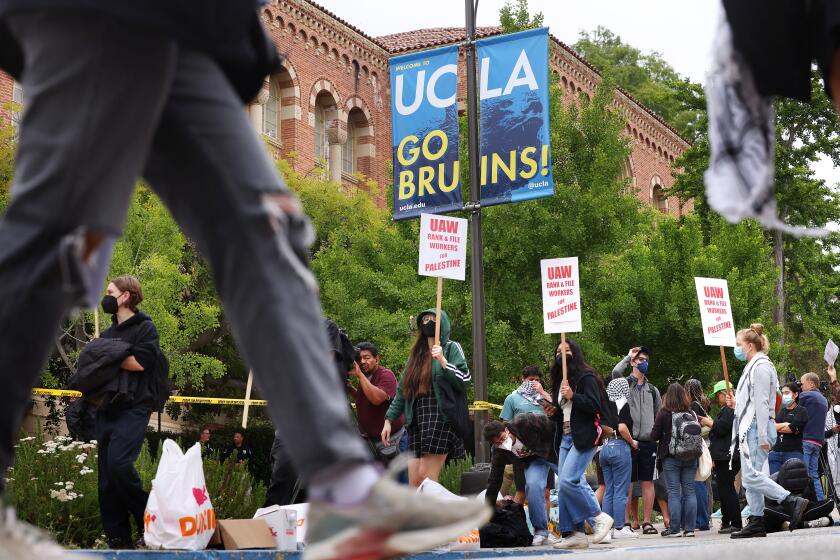Pro-Palestinian protesters at UCLA launched a new encampment on the campus, seeking support as they faced resistance from private security and police. UCLA officials blocked access to several buildings due to the encampment, which comes as Chancellor Gene Block testified before Congress about campus antisemitism amid tense protests over the Israel-Hamas war. Some Jewish students felt intimidated by the previous encampment, with graffiti reading “Death 2 Zionism” present on campus buildings.
The initial encampment led to over 200 arrests as police dismantled tents and protesters clashed, with some accusing UCLA officials of mishandling the situation. UCLA Police Chief John Thomas was subsequently removed from his post over security failures during the encampment. Similar pro-Palestinian activism has taken place at universities across the country, with some camps remaining active while others have been dismantled by police. The response to the protests has sparked tensions between the academic workers union and the UC system.
The union has expanded its strike to UCLA and UC Davis, demanding protection for free speech on campus, amnesty for those facing disciplinary action or arrest, and divestment from companies profiting from Israel’s actions in Gaza. Dozens of academic workers are still facing criminal charges or disciplinary action, facing exclusion from campus and classes. The university has sought a court injunction to halt the strike, arguing it is illegal and that individuals must go through the applicable review processes for any unlawful behavior or policy violations.
The UCLA protesters have faced violence and suppression in their efforts to show solidarity with Palestine and end the bloodshed in Gaza. The ongoing tensions between protesters, authorities, and university officials reflect broader national debates around antisemitism, free speech, and divestment. The encampment at UCLA marked a significant moment in the campus’s history, with officials expressing regret at not ending the encampment sooner to prevent community safety risks.
Despite challenges and crackdowns, the protesters remain steadfast in their support for Palestine and their goal of ending the violence in Gaza. The actions at UCLA and other campuses reflect a growing movement for justice and solidarity with marginalized communities around the world. The response to the protests, including arrests, disciplinary actions, and confrontation, underscores the complex and contentious nature of political activism in academic settings. The ongoing debates over free speech, campus security, and divestment policies are likely to continue as the protests and strikes persist.


